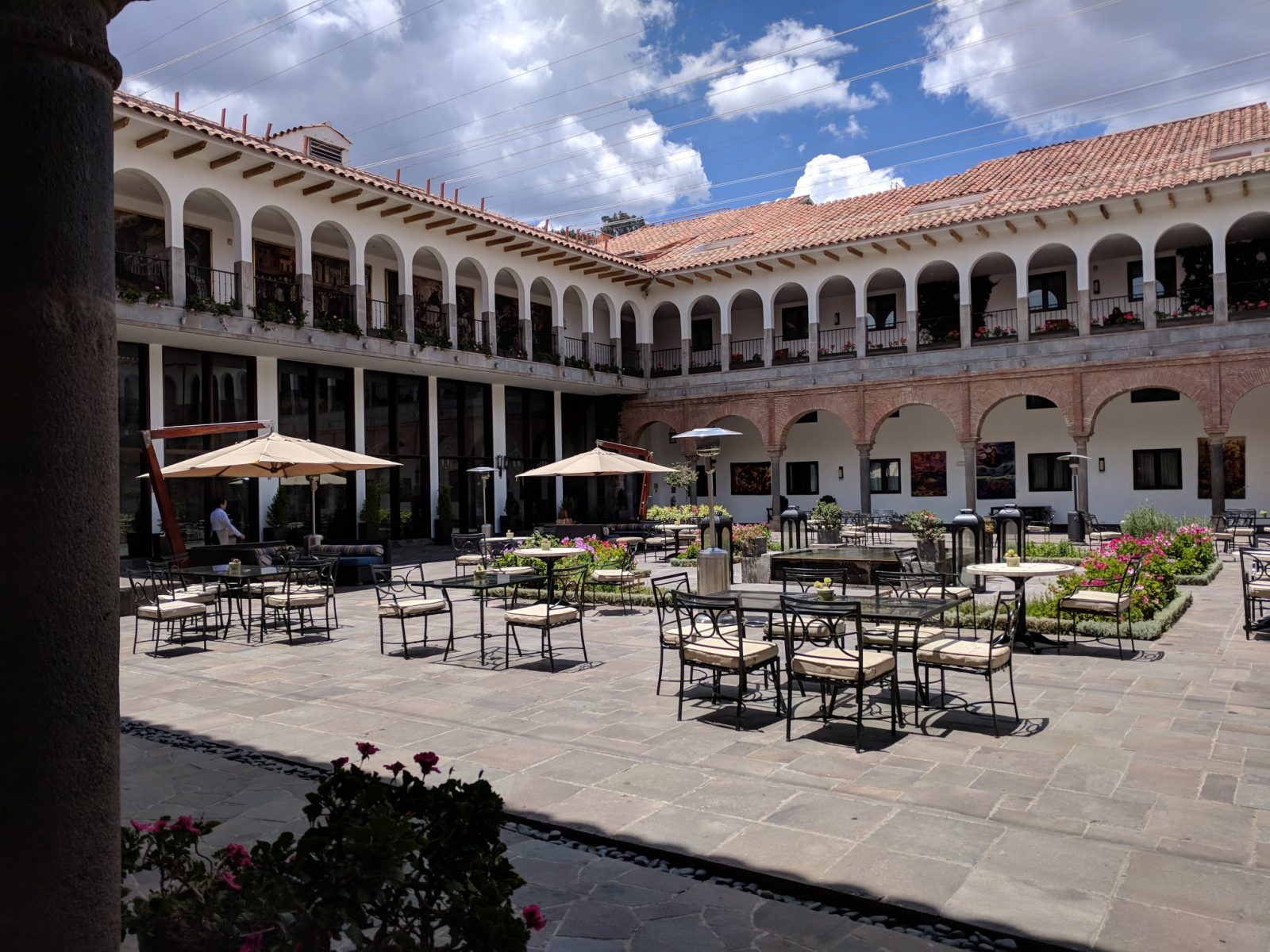Marriott CEO Fights to Keep Resort Fees Hidden
Signing up for credit cards through partner links earns us a commission. Terms apply to the offers listed on this page. Here’s our full advertising policy: How we make money.
INSIDER SECRET: If you book hotels on third-party websites, don’t believe the price on the results page. Sites like Expedia and Booking.com won’t show you resort fees unless you click through to the payment page.A couple years ago, I booked two fantastic hotel stays in Cusco, Peru:
Cusco is a beautifully quaint city with five-star hotels available for just 35,000 Marriott points per night.
However, along with both of these award stays came a “destination fee” of $35+ per day, an inane charge created just to put more money in the pockets of the hotel. This extra fee is better indicated on the Marriott website these days, but it is exasperating to a budget-conscious traveler.
Now, Marriott is staring down the barrel of a lawsuit cocked and loaded by the attorney general of Washington, DC. He poses that these fees “violate consumer protection laws.” In response, Marriott’s CEO says he has zero intention of changing policy.

Marriott CEO Will Fight to Keep Resort Fees Hidden
Resort fees go by many names. Others you may recognize are “amenity fees” and “destination fees.”
The term “destination fee” really burns me up. It sounds like a bill for the simple privilege of stepping foot on the hotel property. And upon close examination, that’s kind of what it is. You’ll find these fees at plenty of hotels that aren’t resorts, and you’ll be hard pressed to distinguish what you get for that money.
Hotels claim that resort fees cover various conveniences that come with a resort, such as:
- Free Wi-Fi
- Food credits
- Spa credits
- Fitness room access
- Free use of non-motorized water activities (like paddleboards)
Marriott CEO Arne Sorenson spoke on the value of resort credits:
For each of our hotels, there is an internal guide that we use, which is delivering multiples of the resort fee in value back to the customer.
lol.
If you utilize the heck out of everything the resort has to offer, perhaps the fee won’t bother you. But many guests aren’t interested in every single hotel amenity, and would rather keep their cash. For example, you may pay a $25 resort credit and receive a $25 beverage credit at check-in. Seems like a wash, but the hotel knows that not all people will redeem their credit, so they’ll come out ahead.
But here’s the really annoying part: Resort fees often do not appear when you book through online travel agencies, like Expedia. So the price you initially see in your search results might be significantly lower than your final price. If you prepay, you may only see the charge on your final payment screen. If you pay at checkout, you may not see the charge until after your stay.Hotels Use Resort Fees to Appear More Competitive
Hospitality consultant Bjorn Hanson conceded that hotels can use resort fees to decrease the base rate of their hotel rooms (the rate that appears on third-party websites) to look more competitive. Yet the higher rates, in effect, remain. I don’t reckon that’s illegal, but it certainly is shameful.
Adding to the inconvenience is the fact that there’s no easy way to figure out which hotels apply resort fees. They’re not always high-end, five-star resorts. Sometimes they’re regular old hotels.
Per Business Travel News, Hanson gave a bit of interesting insight into resort fees:
Marriott manages hotels on behalf of owners for the vast majority of all properties… In some cases, Marriott established the fees. In other cases, an owner or private management established fees. In almost all cases…Marriott is not the primary beneficiary of the resort or destination fees. That would be the hotel owner.
So apparently each Marriott hotel can independently choose to charge resort fees. One can only imagine the eyes of rogue hotel managers bulging with imagined riches.
If the attorney general wins his case against Marriott, it will force the chain to disclose these fees in honest prices on a search results page, instead of making you click through to checkout. It’s infuriating that Marriott’s CEO wants to fight that.
Bottom Line
Resort fees stink, but they’re part of life in the travel world. The frustrating bit is that these fees are often camouflaged until you’re typing in your payment info. This makes it hard for travelers to make the right choice for their budget. Marriott, just tell us what you’re charging so we can make an informed decision without intensive research.
It’s worth mentioning that Marriott is not the only hotel chain that plays this game. The Washington attorney general stated that a reason for this suit against Marriott is to make travelers more aware of these fees in general.
If the DC attorney general loses this suit, however, it will green-light these egregious tactics for the foreseeable future.
Let me know what you think! And subscribe to our newsletter for tips and tricks to avoid paying for travel.
Editorial Note: We're the Million Mile Secrets team. And we're proud of our content, opinions and analysis, and of our reader's comments. These haven’t been reviewed, approved or endorsed by any of the airlines, hotels, or credit card issuers which we often write about. And that’s just how we like it! :)






Join the Discussion!